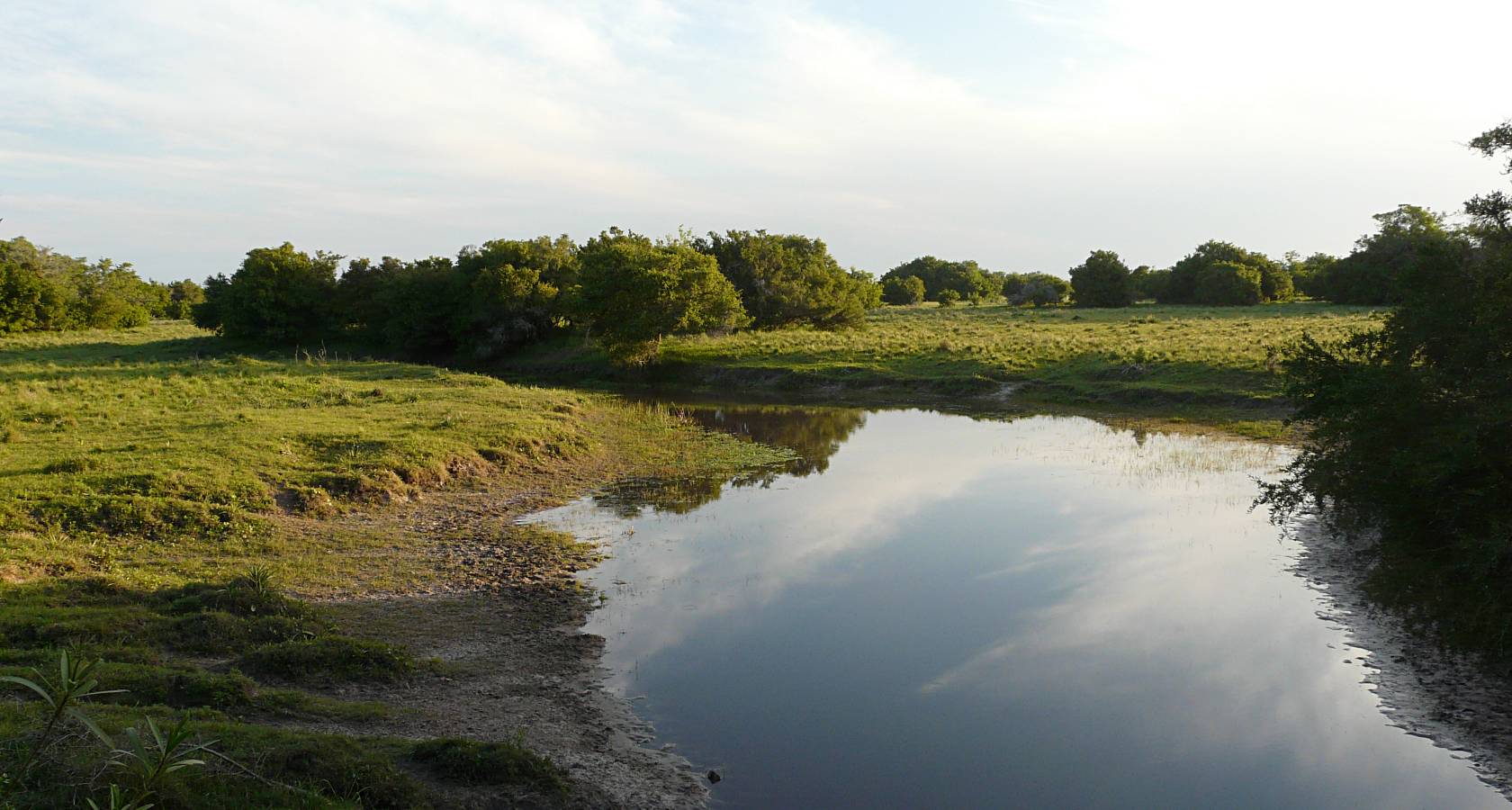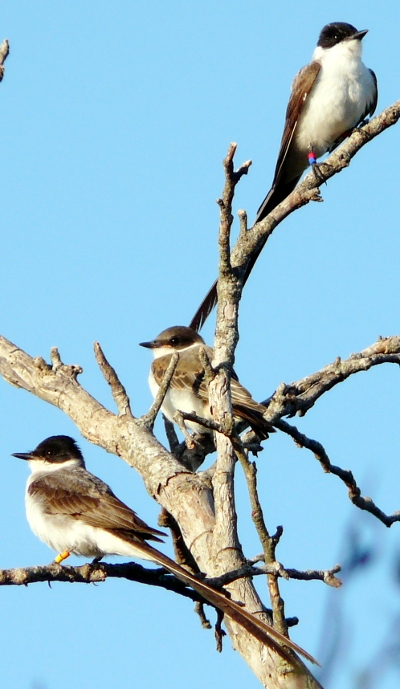The evolution of elaborated traits in most species is mainly driven by sexual selection mechanisms. Particularly, among birds a variety of spectacular ornaments is observed, like wonderful colors, extravagant feathers or extremely larger tails. One mechanism favoring the expression of such traits is intersexual selection through mate choice, where individuals with more exaggerated characters are chosen. Those individuals that show the most exaggerated trait can also gain extra-pair copulations thereby increasing their fitness. However, the evolution of some traits that evolve through sexual selection can be limited by natural selection. This is the case of birds’ tails that play an important role during flight. Nowadays, there is a controversy about how sexual and natural selection drive tail evolution in birds.
Researchers and students involved in this area: J. C. Reboreda and D. T. Tuero.
by Diego T. Tuero
Fork-tailed Flycatcher (Tyrannus savana)
The Fork-tailed Flycatcher is a neotropical migratory bird that breeds at south temperate latitudes of South America (Argentina, Bolivia, Brazil, Paraguay and Uruguay) and overwinters at north tropical latitudes of South America (Brazil, Colombia and Venezuela). The main characteristic of this species is its sexual dimorphism in tail length. On average, the male’s tail is longer than the female’s (25 cm vs. 18 cm). Despite their abundance along their distribution area, the main aspects about their biology, such as their reproductive biology, breeding system, or tail role during mate choice and migratory travels, is unknown.

Since 2009 we have studied this species at the protected area El Destino in Buenos Aires, Argentina. We are interested in how sexual and natural selection drives the evolution of tail length in birds. We are studying individual breeding success, extra-pair paternity, breeding system, mate choice and tail length variability in this species. Also, we are interested in how tail length can affect the parental care or migratory performance both in males and females.

Reserva El Destino, Buenos Aires province, Argentina (D. Tuero)




